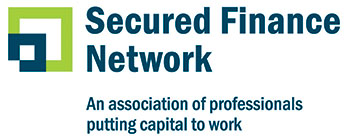- ABL Market Update – Q3 2025: Resilience in the Face of Macro Bifurcation
- SFNet Releases Q3 2025 Asset-Based Lending and Confidence Indexes
- The All-You-Can-Eat Borrowing Base
- SFNet’s 81st Annual Conference: Innovations and Trends Shaping the Future
- Hello to SFNet's New Emerging Leaders Committee Chair, Boudewijn Smit
Legal Issues Surrounding Returning to the Office: Interview with Brooke Iley, Co-Chair of Blank Rome’s Labor & Employment Practice Group
By Michele Ocejo

Brooke Iley counsels and defends domestic and foreign corporations in all areas of employment and labor law compliance and litigation, including wrongful termination, discrimination, harassment, wage and hour class and collective actions, trade secret disputes and data protection, and alleged fiduciary breaches. She represents clients in negotiations, litigations, and arbitrations nationally in these areas.
Brooke also creates compliance, internal audit, and investigation programs to support public and private company operations, workforce management, and corporate governance. As a leader of Blank Rome’s Coronavirus Task Force, she guides clients through the range of business relaunch, operational, and privileged risk assessments.
Brooke implemented a digital COVID-19 impact tracking application to help clients monitor litigation and government enforcement proceedings. She also provides industry-specific advice on matters related to the pandemic, including employee travel, privacy concerns, accommodation requests, layoffs and restructuring programs, policy and operational plans, reconfiguring physical office spaces and work arrangements, tax issues, time off and wage payments, and ongoing business continuity issues.
She is a trusted adviser to companies, providing practical and proactive risk management advice, such as drafting and negotiating key executive agreements, restrictive covenants agreements, and providing employment law knowledge during transactions related to due diligence, purchase agreements, employee transfers, and workforce management.
Brooke is a member of both Blank Rome’s Environmental, Social, and Governance (“ESG”) and Diversity, Equity, and Inclusion (“DEI”) Teams where she routinely advises the highest level of executives and boards on ESG mandates, conducts proactive assessments, and provides strategic counsel related to DEI issues.
Brooke is also a member of Blank Rome’s Diversity & Inclusion Committee, Lateral Recruiting Committee, Strategic Planning Committee, Strategic Plan Implementation Committee, Blank Rome’s Women Who Lead Client Mentor Program, and the D.C. Women’s Forum.
As companies begin to reopen offices, what should employees and employers know about vaccinations? For example, can employers require vaccines and/or COVID testing?
Generally, employers have the right to implement mandatory vaccination and COVID testing requirements subject to an employee’s right to seek accommodations for such requirements. It is important to check with your legal expert to make sure there aren’t any state or local government orders that would prohibit (i.e., Texas and Florida by way of example). Simply put, the federal guidance from the CDC and OSHA continues to evolve and state law doesn’t always track this guidance. We have been dealing with the Wild West when it comes to workplace regulations during COVID, and need to be prepared to track these changes through the end of the year. Workplace guidelines should also focus on the practical impacts to the workforce. As offices continue to open with increased in-person meetings and events that may require business travel, it is important for employers to understand and proactively address their employees’ concerns, which may differ by office, if there are multiple locations. The decisions that a company makes today may have a lasting impact on the culture.
Can employers require employees to wear masks if they are not mandated by local government?
This is a great question, and one that is a hot topic since the CDC’s May 13 announcement that fully vaccinated persons can engage in normal activities without a mask and without social distancing. Many employers are still grappling with the questions of whether to mandate vaccines or strongly encourage and whether to continue masking mandates in the office. Employers can continue to mandate masks in the office. OSHA also issued new emergency temporary standards in June. While these guidelines were focused on the healthcare industry there were also requirements for manufacturing and other workplaces. Otherwise, OSHA said that it supported the May 13th CDC announcements and would issue more guidance for general workplace office environments in the future. Nothing has been issued to date or in response to the CDC’s July 27 pivot on masks and vaccinated employee protocols. With that said, many employers have loosened those requirements for vaccinated employees in the office.
What obligations does an employer have to its returning employees regarding their health?
Going back to OSHA, employers have a general duty to provide a safe working environment to employees.
What recourse do employees have if they feel their employer is overstepping their rights?
Employees have a variety of avenues to address workplace concerns related to COVID-19 policies and/or vaccine mandates. They can file an internal complaint; they can file a complaint or anonymous tip with OSHA. They can file a claim with the EEOC or a lawsuit claiming they were not properly accommodated under the ADA for a religious or medical reason. They also retain rights to file a discrimination, harassment or retaliation claim if they feel they are being treated differently as a result of their vaccination status. In addition, there are several laws that protect the confidentiality of personal and medical information that may also come into play. Two employees may file a similar discrimination complaint based on polar opposite positions (i.e., discriminated against because I was forced to remote work and wasn’t allowed to come to the office versus I was forced to come to the office and was allowed to remote work).
What are the key steps you would advise employers to take as they plan to reopen?
My best advice is to use your time wisely. Survey your workforce to understand key issues. Address baseline legal requirements and ways to mitigate risk with your legal experts. Not only should businesses reassess their reopening plans and guidance, using legal resources to craft clear policies related to remote work, vaccine requirements, COVID testing, COVID exposures and related workplace rules. In addition, make sure that human resources has all the proper forms and procedures related to any accommodations, leave of absence, or other employee requests to be exempted from certain requirements.


.jpg?sfvrsn=f1093d2a_0)
